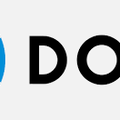Research assessments
The quality and merits of research activities are assessed through peer review using criteria relevant to the field in question.
At the university level, peer review is carried out through regular research assessments, during which an international panel assesses the research quality at the school, department. At the school level, development is monitored by a Scientific Advisory Board or Scientific and Artistic Advisory Board (S(A)AB), comprised of international experts in fields relevant to the school. Every 3 years, the S(A)ABs review and support the research and artistic activities and plans of the school and provide recommendations for further development. An alternative to a S(A)AB is a university-level Research, Art and Impact Assessment RAI conducted every 7-9 years, where the international standing of our activities is analysed based on our results. The next RAI evaluation is done together with at TEE evaluation of teaching and education in 2027. The S(A)AB evaluation will be excluded if the year coincides with a RAI year.
At the individual level, research personnel have annual objective discussions to gain feedback and ensure the progress of research. When advancing in their career, researchers undergo a peer review. Further information of evaluation processes and criteria for academic positions, see the relevant policy site (for professors Tenure track evaluation criteria.; for lecturers , and for other academic positions).
Individuals and teams also receive peer feedback on their funding applications from the funding organisation, and on their submitted articles and conference papers in the editorial process.
Aalto University Research Assessments
RAE2009
In 2009, the research conducted at the founding universities of Aalto University -- Helsinki University of Technology, Helsinki School of Economics and the University of Art and Design Helsinki -- was subjected to an international research evaluation (research assessment exercise, RAE) to evaluate the scientific quality and societal impact of the research and to identify research with world-class potential. This helped to formulate the seven key research areas of the university today.

RAI2018 - Research, Art and Impact Assessment
In the RAI2018 evaluation - Research, Art and Impact Assessment - external experts praised, for instance, the enthusiastic and collaborative work atmosphere, university’s infrastructure, the tenure track career system and the student-driven entrepreneurial ecosystem.

Scientific and Artistic Advisory Boards (SAB, SAAB)
The Scientific (and Artistic) Advisory Boards (S(A)AB) of our schools have an important function in supporting the development of the university.

Current developments in research assessment nationally and internationally
Aalto University is formally committed to the following recommendations:
- European collaboration in reforming research and researcher evaluation: Coalition for Advancing Research Assessment (CoARA) published the Agreement on Reforming Research Assessment in 2022.
- DORA (2013) declaration on research assessment.
- Recommendation for the responsible evaluation of a researcher in Finland (2020) which gives guidance in researcher evaluation, and its implementation, ethical conduct and transparency.
- Finnish National Board on Research Integrity TENK guidelines, especially the guidelines on research integrity (2023), the recommendation on the Curriculum Vitae (2020) and the recommendation on agreeing on authorship in research publications (2018).
Other guidelines on the use of assessments and metrics, serving as a source of inspiration for the university, include but are not limited to:
- User guide for the Publication Forum classification (2019)
- The SCOPE framework for research evaluation (2020)
- Finn-ARMA's National guide to publication metrics (2022)
EU's Agreement on Reforming Research Assessment
The vision the agreement is that the assessment of research, researchers and research organisations recognises the diverse outputs, practices and activities that maximise the quality and impact of research.
National recommendations for responsible researcher evaluation
Researcher evaluation shapes and directs research. The entire research community should take responsibility for the principles and practices of researcher evaluation. This recommendation for the responsible evaluation of a researcher provides the basis for a functioning, diverse and flourishing research community.

Declaration of Research Assessment, DORA
The San Francisco Declaration on Research Assessment, DORA (2013) aims to develop how researchers and their work are evaluated. Aalto University has signed the declaration.

Leiden Manifest
Leiden Manifest offers best practice and principles on metrics-based research assessment







